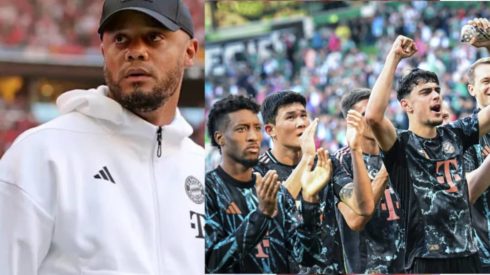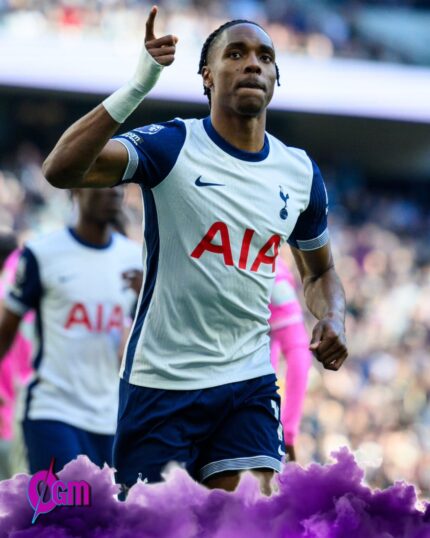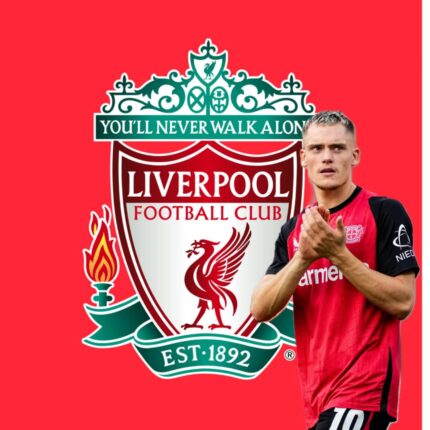Bayern Munich has been the focal point of discussions in the Bundesliga following Vincent Kompany’s appointment as head coach. With an unbeaten record and the team sitting at the top of the Bundesliga, there are signs of improvement compared to their performance under former manager Thomas Tuchel. However, this promising domestic form contrasts sharply with their struggles in the UEFA Champions League, where recent defeats, including a 1-0 loss to Aston Villa and a disappointing 4-1 thrashing by Hansi Flick’s Barcelona, have raised concerns about the team’s defensive solidity and overall strategy.
While the Bundesliga has been a playground for Bayern, highlighted by a resounding 4-0 victory over Mainz in the DFB-Pokal, the Champions League has revealed vulnerabilities in Kompany’s tactics. The coach has inherited a squad with significant flaws, especially in defensive roles and midfield resilience. Positive indicators include Bayern’s status as the league’s highest scorers with 29 goals in eight games, although their over-reliance on high expected goals (xG) suggests an unsustainable trend. The analysis of their performance shows they are creating opportunities but need to refine their approach, especially in high-pressure scenarios.
Tactical Evolution: The Kompany Style
Kompany’s tactical approach has shifted some key players’ roles and responsibilities, creating a more fluid style of play. Notably, Jamal Musiala has been utilized in deeper positions, contributing as both a playmaker and a scoring threat. With seven goals already this season, he is on track to surpass his previous best, demonstrating the effectiveness of Kompany’s adjustments. Meanwhile, Joshua Kimmich’s return to a deeper, more defensive role has rejuvenated other forwards like Serge Gnabry and Kingsley Coman, fostering a dynamic attacking setup.
Bayern’s emphasis on positional fluidity and individual player development has been well-received within the squad. The team has embraced extensive video analysis and personalized training, benefiting young players such as Musiala and Aleksandar Pavlovic. These efforts have yielded positive outcomes on the pitch, although the tactical rigidity at times can make Bayern’s style appear mechanical. As Kompany continues to integrate new ideas, the potential for further growth remains, although finding the right balance between defensive stability and attacking flair is crucial.
Defensive Woes: A Cause for Concern
Despite the impressive attacking stats, Bayern’s defense has been a significant source of criticism. The recent defeats in the Champions League have laid bare the vulnerabilities of center-backs Kim Min-jae and Dayot Upamecano. Questions about their compatibility and individual capabilities have emerged, as both players have been exposed during high-stakes matches. The defensive structure often appears disjointed, leading to easy counter-attacks from opponents, a recurring theme that Kompany must address.
Against Barcelona, lapses in judgment led to crucial goals, highlighting the need for better communication and positioning among the defenders. A botched press, illustrated in their defeat to Villa, revealed how easily Bayern can be exploited when their attack fails to maintain control. The inability to effectively balance pressing and defensive security is symptomatic of a team still in transition, and it raises urgent questions about the immediate need for defensive reinforcements and improved training methods.
Challenges in the Champions League: A Harsh Reality
While Bayern excels in the Bundesliga, the Champions League has proven to be a different beast altogether. The loss to Aston Villa underscored the team’s struggles against organized defenses, as they frequently resorted to long-range shots instead of penetrating the box. This inefficacy has been particularly detrimental to Harry Kane, whose chances have diminished under Kompany’s system. As the season progresses, finding ways to maximize Kane’s impact will be critical for Bayern’s European ambitions.
The defeat to Barcelona further exacerbated the situation, revealing systemic issues that transcend individual player performance. Bayern’s tactical execution, especially during transitions, has been problematic, leading to goals conceded in critical moments. With the pressure of the Champions League mounting, Kompany faces the dual challenge of instilling confidence in his players while refining their tactical discipline. Each setback serves as a learning opportunity, but the rapid pace of elite competition demands swift adjustments.
Looking Ahead: The Path to Improvement
As Bayern Munich navigates this transitional phase under Vincent Kompany, the path to improvement is fraught with challenges. The foundation for success is visible in their domestic performances, yet the team must address defensive weaknesses and adapt their approach in high-pressure situations, particularly in the Champions League. The ongoing integration of new tactics and player roles offers hope for a more cohesive unit, but the urgent need for defensive stability cannot be overstated.
The coming months will be crucial for Kompany as he seeks to blend the traditional strengths of Bayern with modern tactical innovations. While the team’s attacking prowess remains a bright spot, balancing this with defensive solidity will determine their success as they aspire to reclaim their status as one of Europe’s elite clubs. By addressing these concerns head-on, Bayern can continue to build on their progress and strive for silverware both domestically and in Europe.














